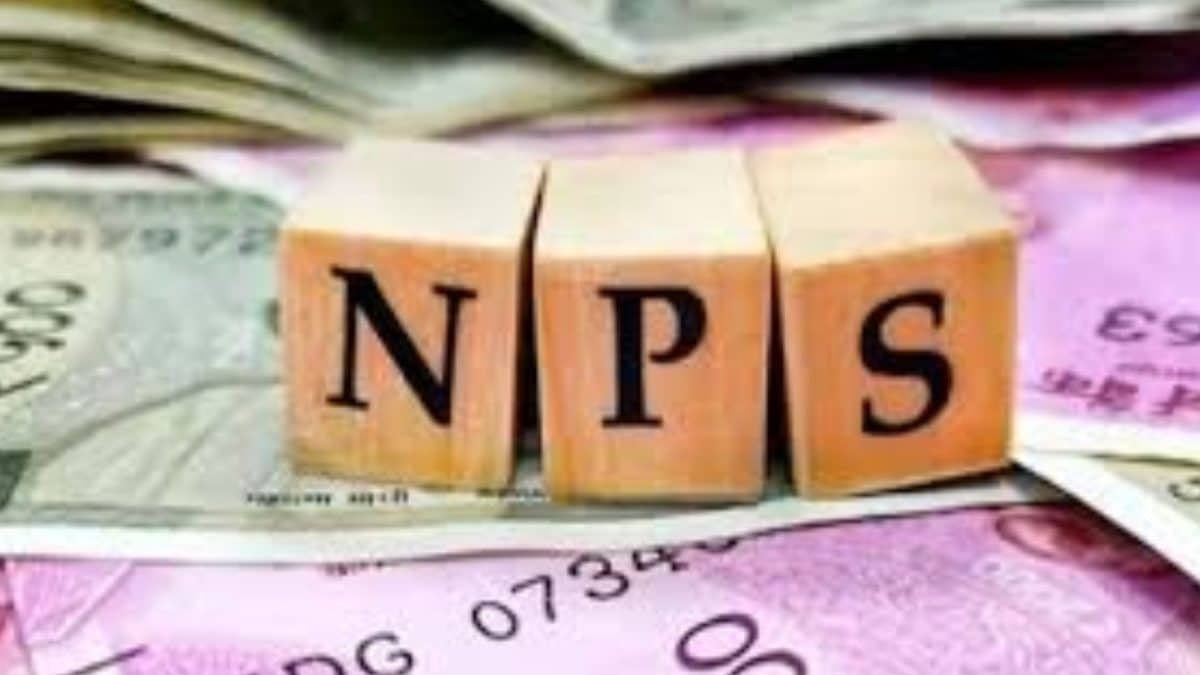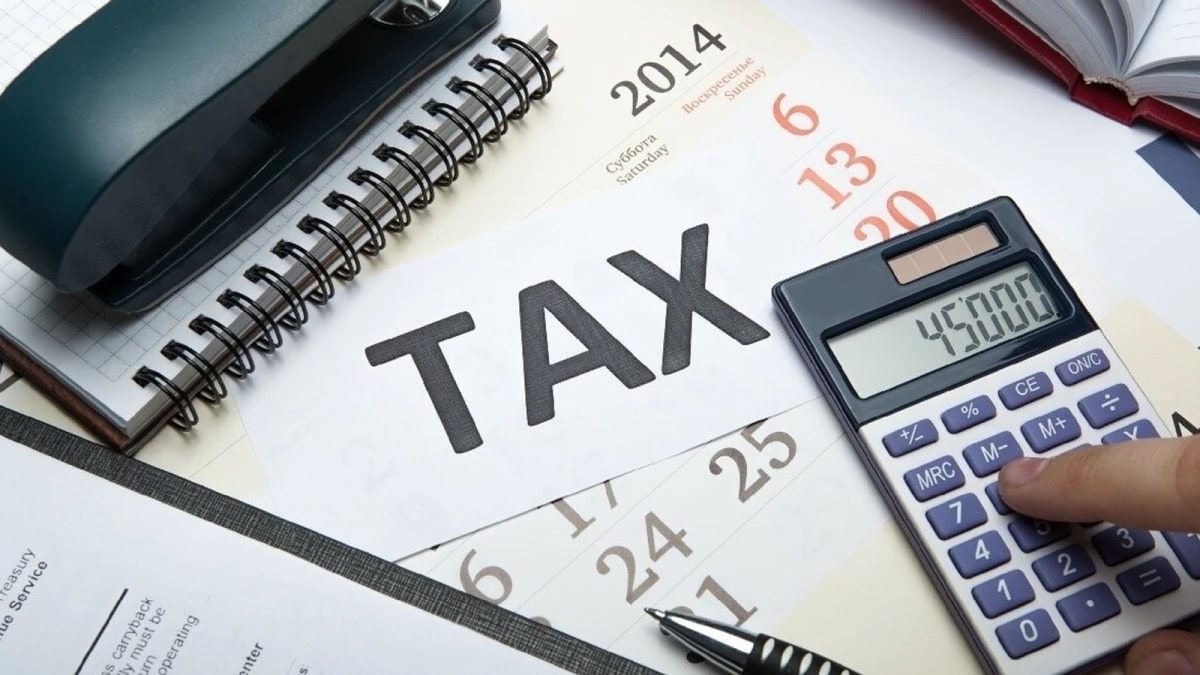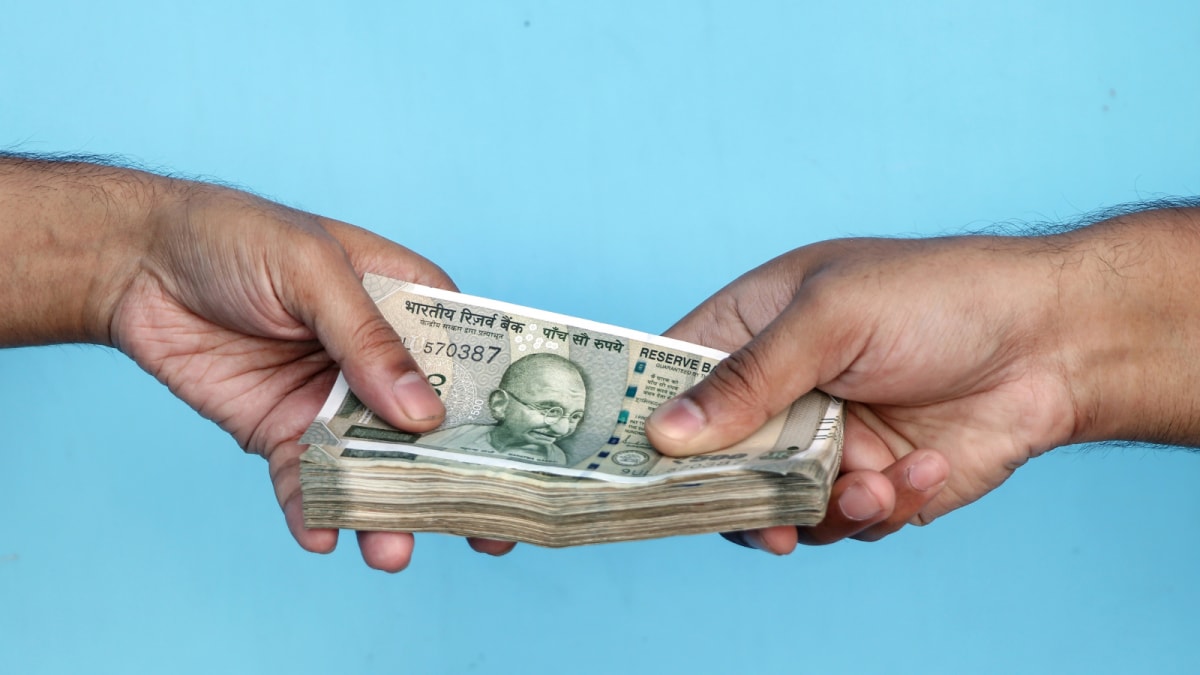Business
‘Trump effect’ raises hopes for cannabis rally as investors bet on federal reforms, softer marijuana stance

Oils containing CBD (Cannabidiol).
Geoffroy Van Der Hasselt | AFP | Getty Images
Cannabis stocks could be poised for a rally after years of stagnation, fueled by investor optimism over the possibility for new federal rules for hemp-derived products and signals that President Donald Trump could take a more permissive stance on marijuana.
Publicly traded cannabis companies have seen their share of ups and downs. Verano Holdings reported earnings Wednesday that saw revenues of $203 million, up slightly from the previous quarter but down 6% year-over-year. However, Verano posted a net loss of $44 million, partly due to a $5 million impairment charge on a facility in Pennsylvania and $10 million in legal contingencies as a result of a settlement.
Next week, two U.S. cannabis giants, Curaleaf and Trulieve, are set to follow in reporting earnings. While the sector is down roughly 10% this year, based on cannabis-focused ETFs, some executives, like the CEO of Tilray Brands, remain optimistic for a turnaround. Already, in October, Tilray Brands‘ stock jolted up 22% after reporting better-than-expected fiscal first-quarter results.
“We could be looking at a true inflection point for cannabis. If reforms move forward, it could attract more companies to do business in the U.S.,” Tilray CEO Irwin Simon told CNBC.
Cannabis company stocks Tilray Brands, Curaleaf and Trulieve
Three developments are driving the growth: Trump’s seeming embrace of Medicare coverage for CBD, a non-intoxicating hemp-derived cannabis compound; the president’s statements about reclassifying the drug status of marijuana; and movement in Congress to regulate hemp.
Meanwhile, cannabis is becoming more popular than ever. As of a 2024 report, daily or near-daily marijuana use surpassed daily drinking in the U.S., based on analysis of 40 years of data from Carnegie Mellon University.
The annual value of the U.S. production of cannabis grew 40% last year from the previous year, according to the Department of Agriculture, and cannabis-derived products, which include CBD and marijuana-based items, are now projected to reach a $160 billion global market by 2032, according to Grand View Research.
The ‘Trump effect’
Optimism in the cannabis market surged in September after Trump shared a video on Truth Social that promoted Medicare coverage of CBD and made unproven anti-aging claims about the substance.
The video was produced by The Commonwealth Project — which advocates for seniors using cannabis and was founded and is funded by Palm Beach billionaire Howard Kessler — and directly appealed to the president.
Known for pioneering affinity credit cards, Kessler shifted to cannabis advocacy in 2019 but has been in Trump’s orbit since at least 2005, attending Trump’s wedding to Melania Trump and appearing at Mar-a-Lago and state dinners. Neither Kessler nor the White House responded to a request for comment on the matter.
Cannabis stocks reacted immediately to the video. On the day it was posted, shares of Tilray spiked 42%, while Aurora Cannabis stock gained 25%, shares of Canopy Growth jumped 18% and Cronos Group stock added 15.5%.
“A lot of folks in the industry saw him [Trump] posting the video as a bit of a surprise but we think he’s trying to gauge how the public feels about cannabis products,” said Adam Smith, executive director of the Marijuana Policy Project, which advocates for the legalization of marijuana. “Some people call it the ‘Trump effect,’ and think if he leans into CBD, it’s possible that other Republicans will support.”
There is limited data on effective doses of CBD for inflammation or chronic pain, particularly in seniors, according to the National Institutes of Health. Kevin Sabet, president of Smart Approaches to Marijuana, an organization opposed to marijuana, said people are overreacting to the post.
“It’s a big stretch to say a post or two is a fully throated endorsement of reform,” Sabet told CNBC. “A lot of times his posts don’t line up with formal policy positions.”
To date, the FDA has only approved one CBD-based drug, Epidiolex, to treat rare forms of epilepsy. Other uses lack scientific evidence and have “largely unknown” effects, said Meg Haney, director of the Cannabis Research Laboratory at Columbia University.
Emoji gummies by JustCBD are displayed at the Cannabis World Congress & Business Exposition trade show, Thursday, May 30, 2019 in New York. The treats contain non-psychoactive cannabidiol, CBD.
Jeremy Rehm | AP
The Farm Bill
Trump’s post also adds to momentum around regulating hemp — which is a variant of the marijuana plant that doesn’t cause a “high, according to the Centers for Disease Control and Prevention — which was legalized under the 2018 Farm Bill. Congress is weighing updates to the bill by year’s-end that could adopt long-awaited federal standards for labeling, testing and safety of hemp-derived products left unregulated under the original law.
“Regulation isn’t scary, as long as it is effective, because the clearer the lines are, the better it is to be in the business [when] you don’t have a looming axe over your head,” said Pamela Epstein, the chief legal and regulatory officer of hemp producer Terpene Belt Farms.
The 2018 legalization triggered a $1.6 billion hemp market by 2023, according to Grand View Research. Hemp-derived CBD products containing less than 0.3% THC — the psychoactive compound responsible for a high — were legalized under the bill and spread rapidly into gummies, beverages, creams and even pet treats, and are projected to drive more than 20% growth by 2030, the data firm said.
But the vacuum of oversight left consumers exposed to mislabeled, untested and sometimes unsafe products, Smith told CNBC.
“It’s possible in the hemp sector grew a little too fast without rules,” Smith said. “Problems came up with some stuff masquerading as CBD but having high levels of THC, products marketed to kids and some products with tainted samples.”
Proposals in Congress range from an outright ban on hemp to tightening THC limits. Others in the cannabis industry are lobbying for an “alcohol-model” framework — with the FDA overseeing product safety and the Alcohol and Tobacco Tax and Trade Bureau managing taxation and distribution.
“Clear rules aren’t scary,” said Tilray CEO Simon. “They’re the best way to grow sustainably and shed the uncertainty that’s defined this space for years.”
People like Epstein caution that a complete ban could cripple the hemp economy, which supports about 320,000 jobs nationwide, according to the U.S. Hemp Roundtable and industry-related reports. But others like Michael Mayes, CEO of cannabis consulting firm Quantum 9, said any form of federal standards is essential to legitimize the market and draw institutional investors.
“Federal regulations would help some investors see cannabis as not a fringe investment with their money,” Mayes told CNBC. “By next year, it’s possible. Smart, consistent rules could be the key to unlocking billions in growth while working to ensure consumer safety.”
Marijuana rescheduling
Trump’s apparent openness to CBD has fueled speculation he may go further.
In August, he said his administration was “looking at” reclassifying marijuana from a Schedule I drug — alongside heroin and LSD — to a Schedule III drug.
The move would not legalize recreational marijuana but it would make it easier to sell, advocates said. It would also improve access to banking and financial services because it would lift certain IRS tax restrictions, which bar cannabis businesses from deducting standard expenses. Changes could also ease barriers to conducting scientific research, which experts said has been stifled under the drug’s current classification.
“To demonstrate that cannabis has medical utility, we need to do large, controlled trials, but we can’t really do those if it’s a Schedule I drug. As a result, that means you can’t do the studies needed to reschedule it,” Haney said. “It’s like the chicken and egg conundrum.”
A White House official described the rescheduling process as ongoing and said that “all policy and legal requirements and implications are being considered.”
Cannabis industry sources said investor optimism partly centers on Trump’s chief of staff, Susie Wiles, who previously worked at Ballard Partners, a Florida lobbying firm representing Trulieve, one of the largest U.S. cannabis companies. Though Wiles wasn’t registered as Trulieve’s lobbyist, she is described by multiple sources in the cannabis industry as a close friend of Trulieve CEO Kim Rivers. The people spoke anonymously to talk candidly about the matter.
According to the Florida Division of Elections, Trulieve spent more than $100 million supporting a failed ballot measure to legalize recreational cannabis for adults 21 and older. The company reportedly played a key role in securing Trump’s backing for the initiative. For the presidential race, according to Federal Election Commission filings, Trulieve donated $750,000 to Trump’s inauguration committee and another $250,000 to his MAGA Inc. super PAC.
Rivers attended two pre-inauguration events, including a dinner for Vice President JD Vance, and reportedly joined a $1 million-a-plate fundraiser at Trump’s New Jersey golf club in August, where she urged him to reclassify marijuana, the Wall Street Journal reported.
Two days after the fundraiser, Trump made his “looking at” comments about marijuana’s classification.
Wiles, Rivers and Truileve did not respond to requests for comment.
A man prepares a marijuana cigarette at Washington Square Park on April 20, 2023 in New York City.
Leonardo Munoz | Corbis News | Getty Images
Republican roadblocks
Despite optimism from investors and advocates, many Republican lawmakers are moving to rein in hemp-derived products, citing safety concerns.
The backlash stems from hemp’s post-2018 boom, which quickly turned into a glut. Licensed acreage soared 445% over the previous year by 2019, according to advocacy and research group Vote Hemp, but the market became oversaturated with products, which forced many retailers and producers to pivot or close, experts said.
“Very quickly, there became a bloat of products and for a lot of the companies, the financial results weren’t there. There wasn’t growth. You had some really tough balance sheets, and I think the investors were unsure of the underlying fundamentals,” Cronos Group CEO Michael Gorenstein said.
Today, the market has rebounded but remains the “Wild West” without regulations, Smith said. FDA research this summer linked unregulated CBD to potential liver damage, and experts warn that THC in hemp can be chemically altered or added in quantities that make it as intoxicating as marijuana.
Lawmakers have responded to safety concerns.
Over the summer, Rep. Andy Harris, R-Md., introduced a bill redefining hemp to exclude any product with “quantifiable” THC, which passed a House committee along party lines. The Senate Appropriations Committee advanced similar language unanimously in July, as Sen. Mitch McConnell, R-Ky., — who championed the 2018 legalization effort — called for restoring the law’s “original intent.” A Congressional Research Service report in August said the proposals would “effectively” ban almost all hemp-derived products.
Looking ahead, many in the industry said the future rests on what Trump does next, particularly in the next few months. Even the perception of regulatory change has spurred investor optimism.
“For many of us, it’s not a question of when but what the regulations will be and how they’ll be enforced,” Gorenstein said. “If the next administration delivers clarity, that alone could shake up this industry.”
Business
NPS Gets A Major Overhaul In 2025: What The New Rules Mean For Your Retirement Money?

Last Updated:
In 2025, a sweeping set of reforms by the Pension Fund Regulatory and Development Authority (PFRDA) has been announced to make NPS more attractive, flexible, and investor-friendly.
Non-government subscribers with an NPS corpus of more than Rs 12 lakh can now withdraw up to 80% of their savings as a lump sum, with only 20% mandatorily allocated to an annuity.
The National Pension System (NPS) has been largely used for tax savings. In 2025, a sweeping set of reforms by the Pension Fund Regulatory and Development Authority (PFRDA) has been announced to make NPS more attractive, flexible, and investor-friendly.
Here’s a simple breakdown of what has changed.
Higher lump-sum withdrawals at retirement
One of the most significant changes is the higher cash withdrawal limit. Non-government subscribers with an NPS corpus of more than Rs 12 lakh can now withdraw up to 80% of their savings as a lump sum, with only 20% mandatorily allocated to an annuity. Earlier, 40% had to be annuitised, a provision that often reduced post-retirement returns.
New withdrawal slabs for smaller NPS corpus
PFRDA has introduced a new withdrawal framework based on corpus size, offering greater flexibility to investors with lower balances.
Subscribers with a corpus below Rs 8 lakh can withdraw 100% of the amount as a lump sum. Those with a corpus between Rs 8 lakh and Rs 12 lakh can choose between phased withdrawals using Systematic Unit Redemption (SUR), partial lump-sum withdrawal combined with annuity purchase, or higher lump-sum withdrawal depending on subscriber category.
Systematic Unit Redemption (SUR) introduced
A key structural reform is the introduction of Systematic Unit Redemption, which allows subscribers to withdraw their NPS corpus gradually over a minimum period of six years. This enables a steady post-retirement income stream without locking funds into an annuity.
Investment age limit extended to 85 years
Subscribers can now remain invested in NPS until 85 years of age, up from the earlier limit of 75. This benefits investors who want to delay withdrawals or continue compounding their retirement corpus beyond the traditional retirement age of 60.
More flexibility in partial withdrawals
Before turning 60, NPS subscribers can now make up to four partial withdrawals, compared with three earlier, with a minimum gap of four years. Withdrawals of up to 25% of own contributions are allowed for specified purposes such as education, marriage, home purchase and medical emergencies.
After 60, subscribers who continue investing can make partial withdrawals with a minimum gap of three years between transactions.
Multiple schemes under one NPS account
Non-government subscribers can now hold multiple schemes under a single PRAN, allowing them to diversify across fund managers and investment strategies without opening separate accounts.
100% equity option for long-term investors
From October 2025, private, corporate and self-employed subscribers can invest up to 100% in equities under the Multiple Scheme Framework, up from the earlier cap of 75%. This option is designed for younger investors with long time horizons who can tolerate higher volatility.
Switching between MSF schemes, however, is restricted for the first 15 years or until age 60.
NPS can now invest in gold, REITs and IPOs
NPS equity schemes are now permitted to invest in gold and silver ETFs, REITs, equity AIFs and IPOs. The combined exposure to these assets is capped at 5% of the equity allocation, offering diversification without excessive risk.
Scheme A discontinued: What subscribers must do
Subscribers invested in Scheme A, which focused on alternative assets such as infrastructure, must switch to Scheme C or Scheme E by December 25, 2025. The scheme is being phased out due to low participation and liquidity challenges.
Other investor-friendly changes
Several additional reforms have further improved NPS attractiveness. These include removal of the five-year lock-in for non-government subscribers, permission to pledge NPS corpus to obtain loans (up to 25% of own contributions), and enhanced tax benefits for NPS Vatsalya contributions under Section 80CCD(1B).
Clearer exit and family protection rules
Exit rules have also been streamlined. Subscribers who renounce Indian citizenship can withdraw their entire corpus. In the event of death, nominees or legal heirs receive 100% of the corpus if no annuity has been purchased. Interim relief provisions have also been introduced for cases where a subscriber is legally declared missing.
December 19, 2025, 16:15 IST
Read More
Business
India’s Net Direct Tax Collection Rises 8% To Rs 17.04 Lakh Crore On Higher Corporate Tax Mop-Up

Last Updated:
Net corporate tax collection during the period (April 1, 2025, to December 17, 2025) stands at about Rs 8.17 lakh crore, up from Rs 7.39 lakh crore in the same period of FY25.
India’s gross direct tax collection, before adjusting refunds, stood at over Rs 20.01 lakh crore so far this fiscal year, a 4.16 per cent growth over the year-ago period.
India’s net direct tax collection has increased 8 per cent to over Rs 17.04 lakh crore in the ongoing financial year so far, on higher corporate tax mop-up. Net corporate tax collection during the period (April 1, 2025, to December 17, 2025) stood at about Rs 8.17 lakh crore, up from Rs 7.39 lakh crore in the same period of FY25.
Refund issuances fell 13.52 per cent to over Rs 2.97 lakh crore between April 1 and December 17.
The country’s non-corporate tax, including individuals and HUFs, mop-up so far this fiscal year stood around Rs 8.46 lakh crore, up from about Rs 7.96 lakh crore in the same period last year.
Securities Transaction Tax (STT) collection stood at Rs 40,194.77 crore so far this fiscal year, marginally higher than Rs 40,114.02 crore in the year-ago period.
India’s gross direct tax collection, before adjusting refunds, stood at over Rs 20.01 lakh crore so far this fiscal year, a 4.16 per cent growth over the year-ago period.
In the current fiscal year, the government has projected its direct tax collection at Rs 25.20 lakh crore, up 12.7 per cent year-on-year. The government aims to collect Rs 78,000 crore from STT in FY26.
Rohinton Sidhwa, partner at Deloitte India, said, “Tax refunds issuance has dropped much below last year, while overall tax collection has grown marginally at 4%. The drop in refunds is being attributed to a higher amount of screening of any fraudulent refund claims. Holding back refunds also accelerates litigation that the tax department can ill afford. Overall, the corporate advance tax increase signals good corporate earnings. Non- corporate advance tax collections have, however, declined possibly on the back of rate cuts for individuals given in the previous Budget.”
December 19, 2025, 12:49 IST
Read More
Business
Government borrowing higher than expected after winter fuel payments U-turn

Borrowing fell last month to its lowest November level for four years but was still higher than expected as figures for the year so far were pushed higher due to the Government’s U-turn on winter fuel payments.
Official figures showed borrowing stood at £11.7 billion last month, £1.9 billion less than in November last year and the lowest for that month since 2021 thanks to a sharp fall in debt interest payments.
But the figure was more than the £10.3 billion expected by most economists and the £8.6 billion forecast in March by the UK’s independent fiscal watchdog, the Office for Budget Responsibility (OBR).
The OBR’s monthly forecasts from the budget on November 26 are not available until mid-January, according to the ONS.
Borrowing for the eight months of the financial year so far was £132.3 billion, £10 billion higher than the same period a year ago and £16.8 billion higher than the OBR forecast in March.
This was partly due to an extra £1.8 billion of spending on winter fuel payments after the Government U-turned on its previous decision to severely restrict payments through means testing, instead opting to give the payout to all pensioners except those earning above £35,000 a year.
This helped drive an upward revision to borrowing for the seven months to October by £3.9 billion.
ONS senior statistician Tom Davies said: “Despite an increase in spending, this month’s borrowing was the lowest November for four years.
“The main reason for the drop from last year was increased receipts from taxes and National Insurance contributions.”
November’s figure was pushed lower thanks to falling debt interest payments on borrowing, down by £200 million year-on-year to £3.4 billion and the lowest November level for six years.
Public sector net debt, including the Bank of England, reached £2.93 trillion at the end of November, which is around 95.6% of gross domestic product (GDP) and 0.3 percentage points more than a year ago, although remains at levels last seen in the early 1960s.
Elliott Jordan-Doak, senior UK economist at Pantheon Macroeconomics, said there was “very little Christmas cheer for the Chancellor” in the latest borrowing figures.
He added: “Ms Reeves has staked much fiscal credibility on chunky tax increases in the back end of the forecast period. But we think today’s figures further illustrate the shaky foundations of that gamble.
“Revenues continue to underperform, and the smorgasbord approach of tax increases relies on distortionary tax increases with uncertain yields.
“We also have serious doubts about the Government’s ability to follow through on the raft of spending cuts announced in the Budget.”
Chief Secretary to the Treasury James Murray said the debt interest payments underscored the need to bring borrowing down.
He said: “£1 in every £10 we spend goes on debt interest – money that could otherwise be invested in public services.
“That is why last month the Chancellor set out a Budget that delivers on our pledge to cut debt and borrowing.”
Martin Beck at WPI Strategy said “confidence remains the missing ingredient”.
“A clear and credible pro-growth strategy from the Government – and an end to the pervasive gloom surrounding the UK economy – may matter just as much for the public finances as the fine print of future tax and spending plans,” he said.
-

 Business6 days ago
Business6 days agoHitting The ‘High Notes’ In Ties: Nepal Set To Lift Ban On Indian Bills Above ₹100
-

 Politics1 week ago
Politics1 week agoTrump launches gold card programme for expedited visas with a $1m price tag
-

 Business1 week ago
Business1 week agoRivian turns to AI, autonomy to woo investors as EV sales stall
-

 Fashion1 week ago
Fashion1 week agoTommy Hilfiger appoints Sergio Pérez as global menswear ambassador
-

 Business1 week ago
Business1 week agoCoca-Cola taps COO Henrique Braun to replace James Quincey as CEO in 2026
-

 Sports1 week ago
Sports1 week agoPolice detain Michigan head football coach Sherrone Moore after firing, salacious details emerge: report
-

 Tech1 week ago
Tech1 week agoGoogle DeepMind partners with UK government to deliver AI | Computer Weekly
-

 Sports1 week ago
Sports1 week agoU.S. House passes bill to combat stadium drones













